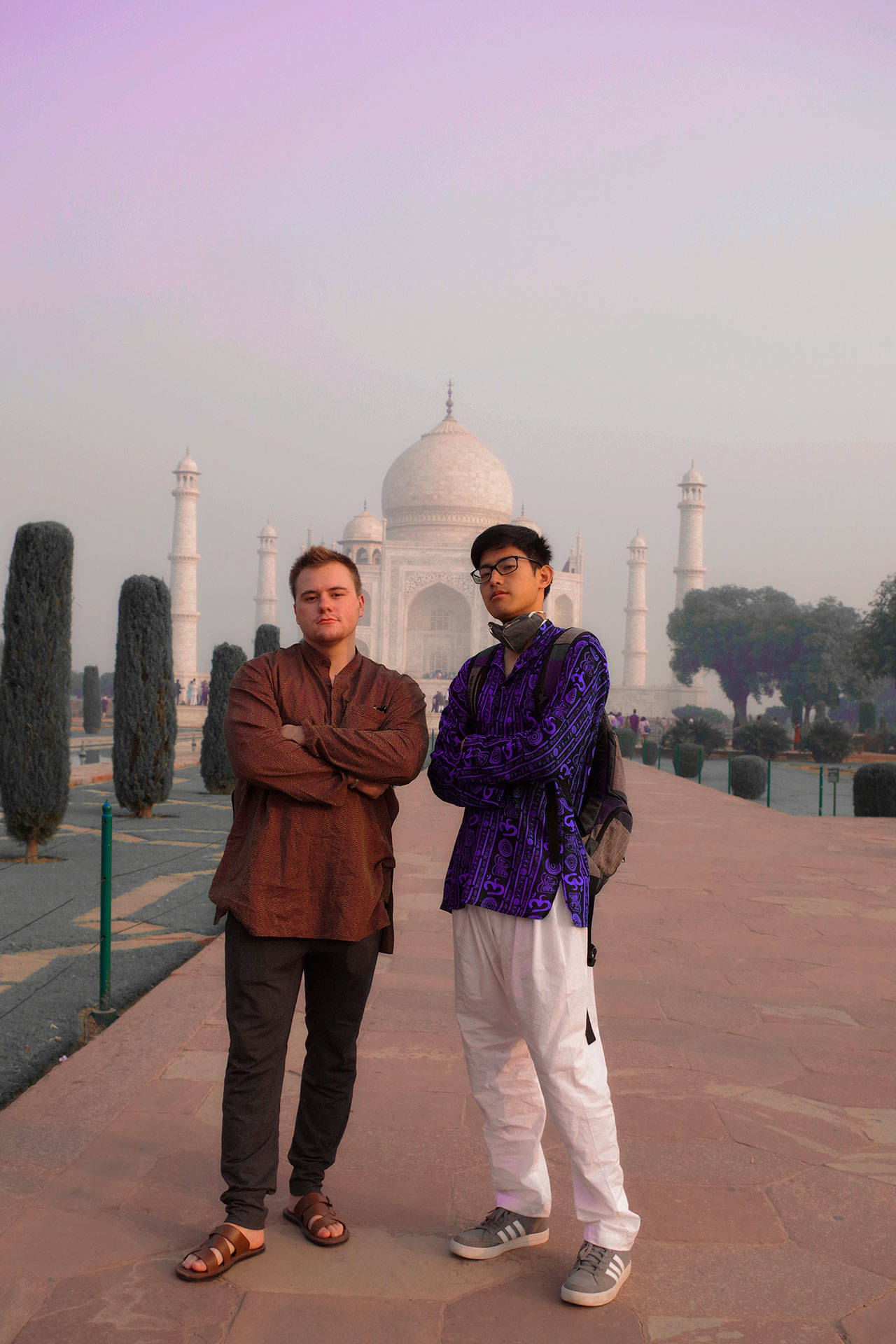Islanders Brett Bottomley and Stuart Toda met in fifth grade, joining the same soccer team and later graduating from high school together in 2015. Little did they know that two years later, they would be traveling around Europe and Asia together as well.
Bottomley and Toda are both juniors at Babson College in Wellesley, Massachusetts, which offers a unique study abroad course called the BRIC program. After an intensive pre-departure program, students spend one month apiece in St. Petersburg, Russia, Shanghai, China and New Delhi, India, meeting with international business leaders and learning about different cultures.
“It has been an incredible experience, and there are very few programs like this in the U.S.,” Bottomley said.
In economics, BRIC is a grouping acronym that refers to the countries of Brazil, Russia, India and China. They cover 25 percent of the world’s land and account for more than 40 percent of the global population. Both Bottomley and Toda are studying business, as it is the only major offered at Babson. But the courses offered both on and way off campus have a liberal arts emphasis.
The group of 24 students from Babson studied history, politics and culture in Russia, entrepreneurship and new ventures in China and world religion in India. One administrator, the on-site coordinator, traveled with the group for the entire semester, and they met with their different professors along the way for two to four weeks at a time.
Their days were always busy, and structured. Over eight days in Russia, the group visited the American Chamber of Commerce, U.S. consul general’s residence, Dell EMC, TRA Robotics, Imperial Porcelain, Solopharm and PricewaterhouseCoopers.
Bottomley and Toda said the pace of the trip helped them become acquainted to new surroundings quickly.
“Once we got comfortable, we were thrown into a new environment,” Toda said.
The BRIC program is competitive; about 120 people applied for the 24 spots in the course.
Though they often had homework after full days of classes and business meetings, they said they still had enough time to experience the local history, art and food. They also got a chance to meet local students, and meet up with friends from Babson and Mercer Island who were studying abroad in the different locations for the whole semester.
Some experiences were designed to help them unplug: they spent one night at a rural homestay right next to the Great Wall of China, which they explored during a sunrise hike. That was the first “wonder of the world” they saw; they later visited the Taj Mahal.
Bottomley and Toda said that they’d heard about controversies between the U.S. and China and especially Russia, but that it was important to see the countries for themselves and try to understand the misconceptions, both held by and prescribed to Americans. They said they learned a lot from speaking with local young people.
“We were learning from them and they were learning from us,” Bottomley said.
They said they often gained new perspective, and learned new ways to tackle problems and work collaboratively with people who have different backgrounds, all valuable skills in the business world.
They also realized how connected the world is becoming, they said.
Bottomley wrote that “you can’t learn about the business environment without learning about and showing appreciation for the country’s culture and history” in a blog he updated over the course of the semester.
He and Toda had studied the United Kingdom, China, Russia and Iran in a comparative government class at Mercer Island High School, but experiencing the cultures firsthand gave them new understanding.
They said they hope that more students from Mercer Island study abroad, and said that only 7-8 percent of college students get a chance to do it.
Bottomley, who plays lacrosse for Babson, said the trip didn’t interfere with his sports season. He said he is excited to travel again, having already done a 10-day Elective Abroad course focused on entrepreneurship in Tokyo last winter.
Toda said he also has “travel fever” and is looking into international internships in China and Hong Kong. Since the program ended in mid-November, Toda had time to travel around Korea before heading back to Mercer Island for winter break, then to Massachusetts for the spring semester.
When the students returned to the U.S., they had a “re-entry workshop” where they learned how to deal with culture shock, and how to articulate the experience for their friends, family and future employers.
“It’s not just saying what you did, but what you got out of it,” Bottomley said.
There were some challenges, such as dealing with pollution in India and the lack of access to Google and Facebook in China, but overall Bottomley and Toda said it was an experience they will never forget.
“I thought I would be relieved to be home, and I didn’t think I wanted to work outside the U.S.,” Toda said.
“I’m open to starting work anywhere,” Bottomley said.



